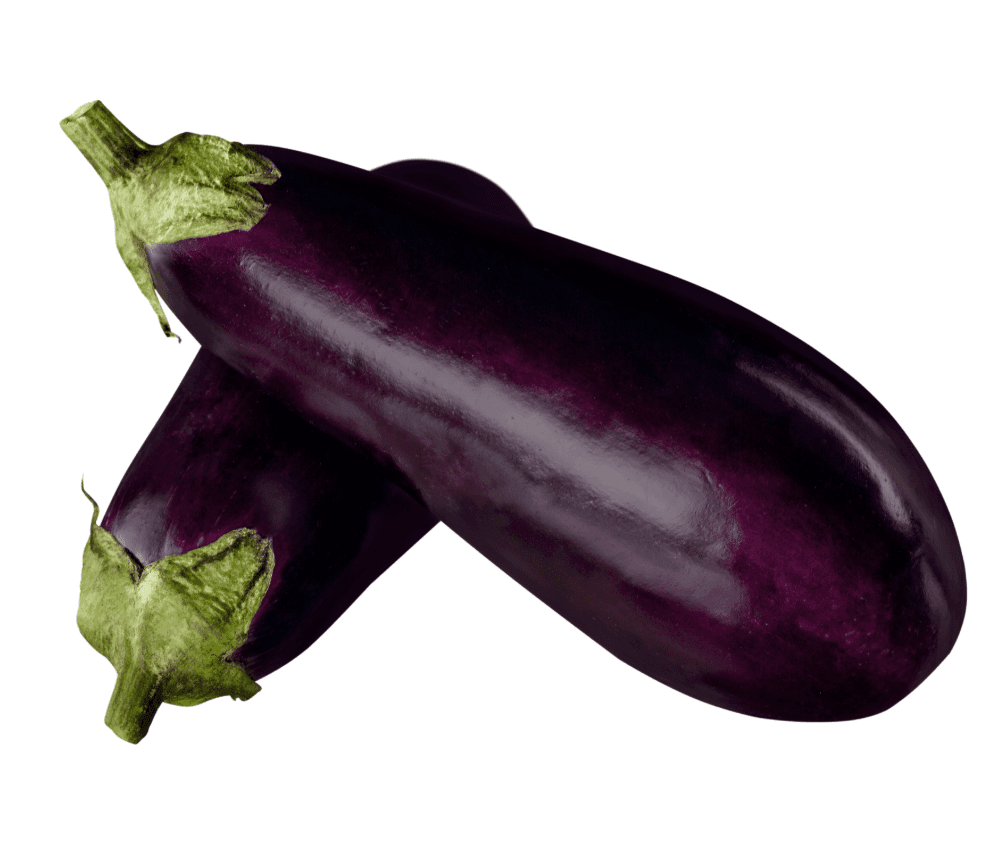Eggplant
Dogs and cats can eat eggplant in moderation, but there are a few important precautions to keep in mind.

Eggplant is a low-calorie, fiber-rich vegetable that contains valuable nutrients such as vitamin C, vitamin K, vitamin B6, potassium, manganese, and antioxidants. These nutrients support immune function, heart health, digestion, and overall cellular health.
However, because eggplant belongs to the nightshade family, it contains a natural compound called solanine, which can cause digestive upset or allergic reactions in some pets if consumed in large quantities. Therefore, feed only small amounts and monitor your pet’s reaction when introducing eggplant into their diet.
Nutritional Benefits
Vitamin C
Strengthens the immune system, acts as an antioxidant to protect cells from free-radical damage, and aids in collagen production to support healthy skin, joints, and connective tissues.
Vitamin K
Plays an important role in blood clotting and contributes to bone health when combined with calcium.
Vitamin B6
Supports metabolism, brain health, and red blood cell production, helping maintain overall energy levels and vitality.
Potassium & Manganese
Help regulate blood pressure, support heart and muscle function, and contribute to strong bones and a healthy metabolism.
Dietary Fiber
Aids in digestion, promotes healthy bowel movements, helps regulate blood sugar, and increases satiety for weight management.
Recommended Amount
Feed eggplant as a treat or supplement, making up no more than 10% of daily caloric intake. Start with a small amount (about 1–2 small pieces) to see how your pet reacts, especially if it’s their first time eating eggplant.
How to Feed Eggplant
- Cooked eggplant: Lightly steam or boil without oil, seasoning, or spices. Cooking reduces solanine content and makes digestion easier.
- Raw eggplant: Small, finely chopped raw pieces can be offered, but cooked is generally safer and gentler on the stomach.
- Avoid seasoning: Never serve with garlic, onions, salt, or oil—these can be toxic or harmful.
Cautions When Feeding Eggplant
- Do not feed the stem or leaves; they contain higher concentrations of solanine and can be toxic.
- Monitor for allergic reactions (itching, swelling, digestive upset), especially during the first feeding.
- Pets with kidney disease, arthritis, or inflammatory conditions may be more sensitive to nightshades—consult your veterinarian before including eggplant.
Summary
Eggplant can be a safe and nutritious treat for dogs and cats when served correctly. It offers fiber, antioxidants, and essential vitamins that support immune health, digestion, and metabolic function. Serve cooked, plain, and in small portions, and watch for any signs of sensitivity.